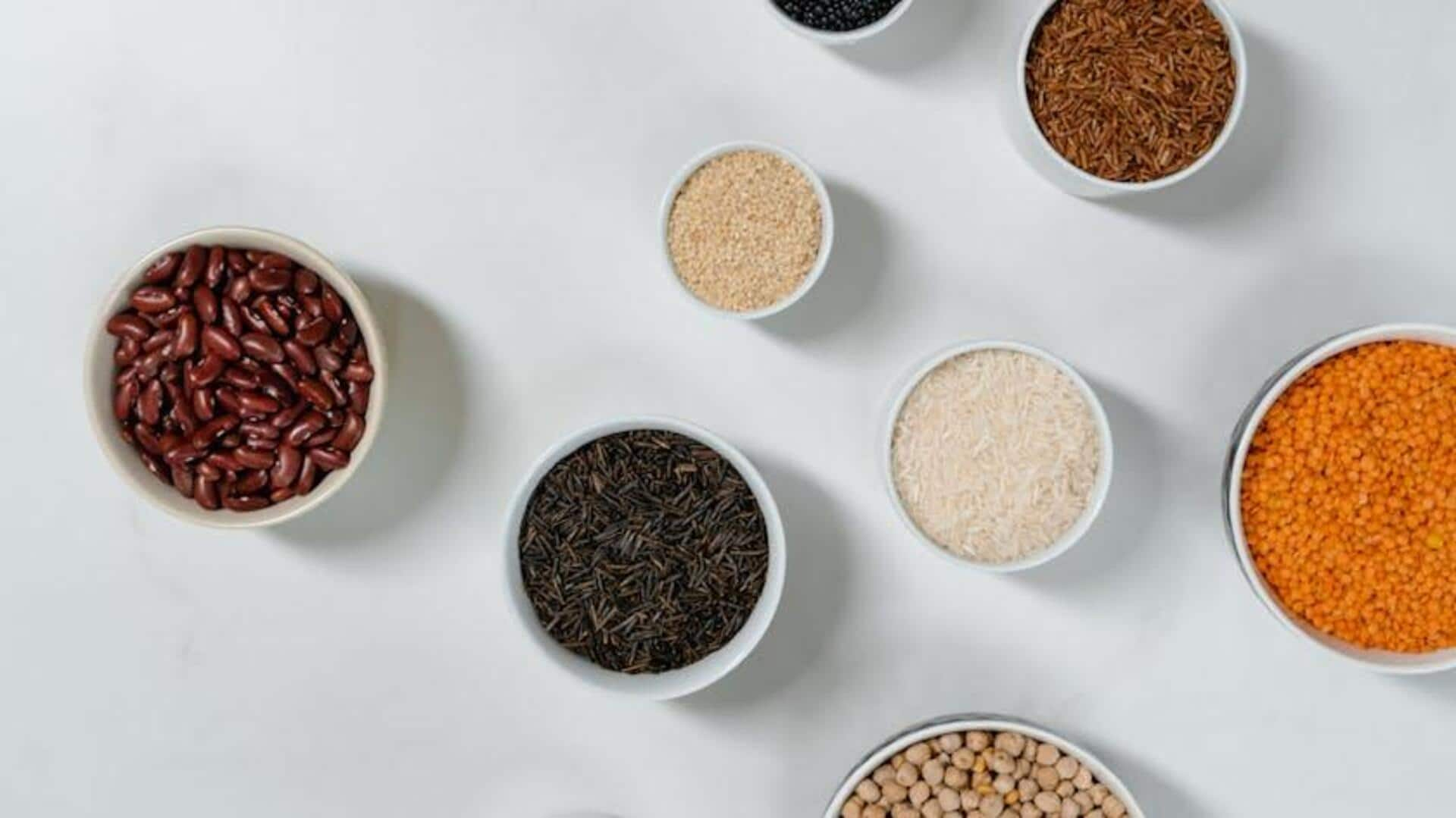
How to include plant-based proteins in your diet
What's the story
Incorporating plant-based proteins into your diet can be a great way to maintain your daily health.
These proteins are not just packed with essential nutrients but also provide a sustainable option instead of animal-based sources.
For beginners, knowing which plant-based proteins to include can be important for balanced nutrition.
Here, we look at five easy and nutritious options that can easily find a place in your daily meals.
Lentils
Lentils: A versatile protein source
Lentils are a go-to for many vegetarians since they are packed with protein and super versatile.
They offer 18 grams of protein in a cooked cup and are packed with fiber, iron, and folate.
Lentils can be added to soups, salads, or used as meat in several dishes.
Since they soak up flavors easily, lentils can be a great addition to any plant-based meal plan.
Chickpeas
Chickpeas: Nutrient-dense legumes
Chickpeas provide about 15 grams of protein per cooked cup and are loaded with important nutrients such as fiber, iron, and magnesium.
You could snack on them roasted or blend them into hummus for a creamy dip.
Chickpeas also make a great base for curries and stews, adding texture as well as nutritional value.
Quinoa
Quinoa: Complete protein grain
Quinoa stands out from the crowd of grains as it is the only one to contain all nine essential amino acids, making it a complete protein source (approximately eight grams of protein per cooked cup).
It is also gluten-free and rich in fiber and magnesium.
Its mild flavor makes quinoa an amazing companion with other ingredients in salads or as a side with vegetables.
Tofu
Tofu: Soy-based protein alternative
Tofu, being soybeans-based, provides about 10 grams of protein in a half-cup serving. It is low calorie but high in calcium and iron.
The neutral taste of tofu makes it a versatile option for various cuisines.
You can stir-fry it, grill it, or throw it in soups for additional protein without significantly changing the flavor profile of the dish.
Chia seeds
Chia seeds: Tiny nutritional powerhouses
Though small, chia seeds also offer about four grams of protein per ounce, omega-3 fatty acids, and antioxidants.
They also form a gel when mixed with liquid, which is what makes them a good substitute in recipes or pudding base.
This adds nutritional value to recipes without overpowering other flavors, perfect for those gradually adopting the healthier dietary changes.